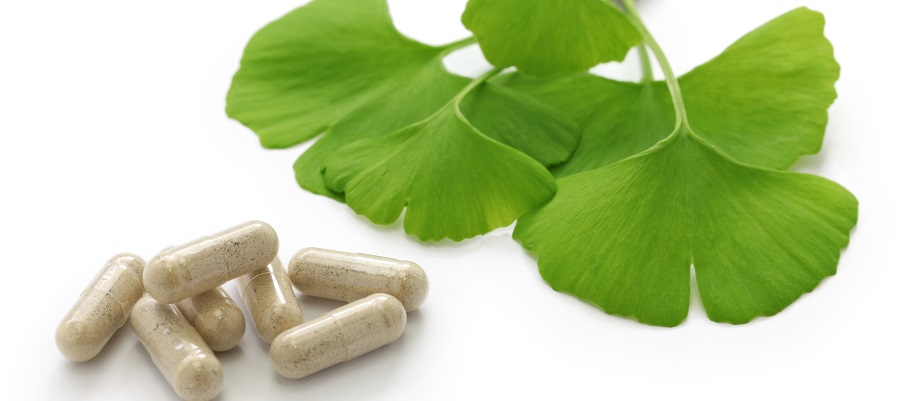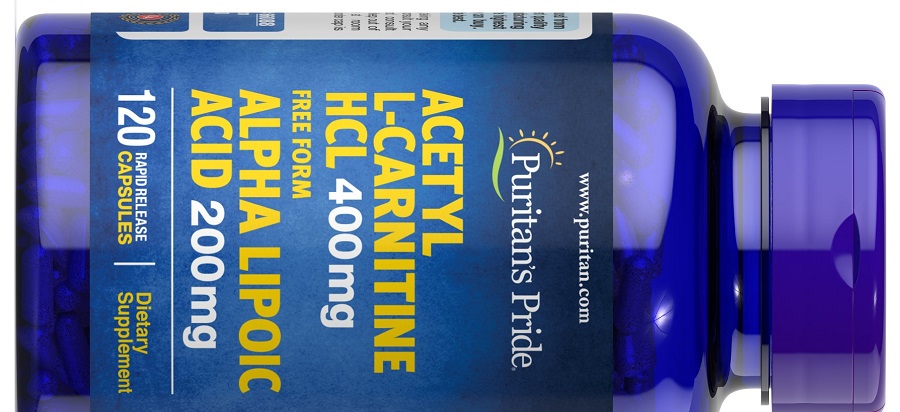Ginkgo Biloba, also known as Maidenhair, is a plant species that is native to China and is one of the oldest living tree species in the world. The extract from the leaves of the Ginkgo Biloba tree has been used in traditional Chinese medicine for centuries to improve memory, concentration, and overall cognitive function.
The active compounds in Ginkgo Biloba include flavonoids and terpenoids, which are antioxidants that can help to protect cells from damage caused by free radicals. Ginkgo Biloba is believed to work by increasing blood flow to the brain, which can help to improve cognitive function and memory. It may also have a positive effect on anxiety and depression.
Ginkgo Biloba has been studied for its potential benefits in treating conditions such as dementia and Alzheimer's disease. However, the results of these studies are mixed and more research is needed to determine its effectiveness in treating these conditions.
Ginkgo Biloba is also believed to improve blood flow and circulation, which can help to reduce the risk of cardiovascular disease. It may also help to improve sexual dysfunction and impotence in men.
It is important to note that Ginkgo Biloba may interact with certain medications and can cause side effects such as stomach upset, headaches, and allergic reactions in some people. It is generally considered safe for most people when taken in recommended doses, but you should always consult with a healthcare professional before taking any supplement.
What are the active compounds in Ginkgo Biloba and how do they work?
The active compounds in Ginkgo Biloba include flavonoids and terpenoids. Flavonoids are a type of antioxidant that can help to protect cells from damage caused by free radicals. Terpenoids, specifically Ginkgolides and Bilobalides, are believed to improve blood flow to the brain by dilating blood vessels and reducing the stickiness of platelets.
Ginkgo Biloba is believed to work by increasing blood flow to the brain, which can help to improve cognitive function and memory. The flavonoids and terpenoids in Ginkgo Biloba may also have a protective effect on nerve cells, which can help to reduce the risk of age-related cognitive decline. Additionally, the terpenoids in Ginkgo Biloba may also have anti-inflammatory properties, which can help to reduce symptoms of certain conditions, such as asthma and tinnitus.
It is also believed that Ginkgo Biloba may help to reduce oxidative stress in the brain, which can help to protect nerve cells from damage. This can help to improve cognitive function and memory, and may also have a protective effect on the brain against age-related decline.
However, it is important to note that more research is needed to fully understand the mechanisms of action of Ginkgo Biloba and the specific role of its active compounds.
What are the potential benefits of taking Ginkgo Biloba supplements?
The potential benefits of taking Ginkgo Biloba supplements include:
-
Improving cognitive function and memory: Some studies have shown that Ginkgo Biloba may help to improve memory and cognitive function in healthy adults and in those with age-related cognitive decline.
-
Treating dementia and Alzheimer's disease: Ginkgo Biloba has been studied for its potential benefits in treating dementia and Alzheimer's disease, but the results of these studies are mixed and more research is needed to determine its effectiveness.
-
Reducing symptoms of anxiety and depression: Ginkgo Biloba may help to reduce symptoms of anxiety and depression by increasing blood flow to the brain.
-
Improving blood flow and circulation: Ginkgo Biloba may help to improve blood flow and circulation by dilating blood vessels and reducing the stickiness of platelets.
-
Treating sexual dysfunction: Ginkgo Biloba may help to improve sexual dysfunction and impotence in men by improving blood flow to the genitals.
-
Reducing symptoms of asthma: Ginkgo Biloba may help to reduce symptoms of asthma by reducing inflammation in the airways.
-
Treating tinnitus: Ginkgo Biloba may help to reduce symptoms of tinnitus by improving blood flow to the inner ear and reducing inflammation.
-
Reducing the risk of cardiovascular disease: Ginkgo Biloba may help to reduce the risk of cardiovascular disease by improving blood flow and reducing inflammation.
It is important to note that more research is needed to fully understand the potential benefits of Ginkgo Biloba and to confirm the efficacy of these uses. Consult with a healthcare professional before taking Ginkgo Biloba or any other supplement.
How does Ginkgo Biloba help to improve cognitive function and memory?
Ginkgo Biloba is believed to help improve cognitive function and memory by increasing blood flow to the brain. The flavonoids and terpenoids in Ginkgo Biloba can dilate blood vessels, which can increase blood flow to the brain, providing it with more oxygen and nutrients. This increased blood flow can help to improve cognitive function and memory.
Additionally, Ginkgo Biloba may also have a protective effect on nerve cells, which can help to reduce the risk of age-related cognitive decline. The terpenoids in Ginkgo Biloba may also have anti-inflammatory properties which can help to reduce symptoms of certain conditions, such as asthma and tinnitus.
It is also believed that Ginkgo Biloba may help to reduce oxidative stress in the brain, which can help to protect nerve cells from damage. This can help to improve cognitive function and memory, and may also have a protective effect on the brain against age-related decline.
However, it is important to note that more research is needed to fully understand the mechanisms of action of Ginkgo Biloba and the specific role of its active compounds on cognitive function and memory. Additionally, not all studies on Ginkgo Biloba and cognitive function have found positive results and further research is needed to establish the true effect of Ginkgo Biloba on cognitive function and memory.
Is Ginkgo Biloba effective in treating conditions such as dementia and Alzheimer's disease?
Ginkgo Biloba has been studied for its potential benefits in treating conditions such as dementia and Alzheimer's disease. Some studies have suggested that Ginkgo Biloba may help to improve cognitive function and memory in people with dementia and Alzheimer's disease, however, the results of these studies are mixed.
A systematic review of clinical trials published in the Journal of the American Medical Association (JAMA) in 2009, found that Ginkgo Biloba was not effective in preventing or treating Alzheimer's disease. Other studies have also found that Ginkgo Biloba was no more effective than a placebo in treating dementia or Alzheimer's disease.
A more recent systematic review and meta-analysis of randomized controlled trials published in 2020, found that Ginkgo Biloba may have a small benefit in improving cognition in individuals with mild to moderate dementia. However, the authors also pointed out that the quality of evidence is low to moderate, and more high-quality trials are needed to confirm these findings.
It is important to note that Ginkgo Biloba is not a cure for dementia or Alzheimer's disease, and it should not be used as a substitute for conventional medical treatment. It is also important to consult with a healthcare professional before taking Ginkgo Biloba or any other supplement, especially if you have dementia or Alzheimer's disease.
Can Ginkgo Biloba help to improve symptoms of anxiety and depression?
Some studies have suggested that Ginkgo Biloba may help to improve symptoms of anxiety and depression, however, the results of these studies are mixed.
A study published in the Journal of Psychiatric Research in 2009 found that Ginkgo Biloba may be effective in treating symptoms of anxiety. The study found that people who took Ginkgo Biloba supplements had a significant reduction in symptoms of anxiety compared to those who took a placebo.
Another study published in the journal Planta Medica in 2010, found that Ginkgo Biloba may help to reduce symptoms of depression. The study found that people who took Ginkgo Biloba supplements had a significant reduction in symptoms of depression compared to those who took a placebo.
However, not all studies have found positive results. A study published in the Journal of Clinical Psychopharmacology in 2002, found that Ginkgo Biloba was not effective in treating symptoms of anxiety and depression.
It is important to note that more research is needed to fully understand the potential benefits of Ginkgo Biloba in treating symptoms of anxiety and depression, and to establish the true effect of Ginkgo Biloba on these conditions. Additionally, Ginkgo Biloba should not be used as a substitute for conventional medical treatment for anxiety or depression, it's always important to consult with a healthcare professional before taking Ginkgo Biloba or any other supplement.
How does Ginkgo Biloba affect blood flow and circulation?
Ginkgo Biloba is believed to affect blood flow and circulation by dilating blood vessels and reducing the stickiness of platelets. The active compounds in Ginkgo Biloba, specifically the terpenoids, Ginkgolides and Bilobalides, have been found to have a vasodilating effect, which means they can widen the blood vessels, allowing for better blood flow and circulation. This can also help to reduce the risk of blood clots by reducing the stickiness of platelets.
Ginkgo Biloba may also help to improve blood flow to the legs and feet, which can help to reduce the symptoms of peripheral arterial disease (PAD) such as pain, cramping, and numbness in the legs and feet.
Additionally, Ginkgo Biloba may also help to improve blood flow to the genitals, which can help to improve sexual dysfunction and impotence in men.
It's important to note that not all studies have found positive results, and more research is needed to fully understand the effects of Ginkgo Biloba on blood flow and circulation. It's also important to consult with a healthcare professional before taking Ginkgo Biloba or any other supplement, especially if you have a blood clotting disorder or are taking blood thinning medication.


